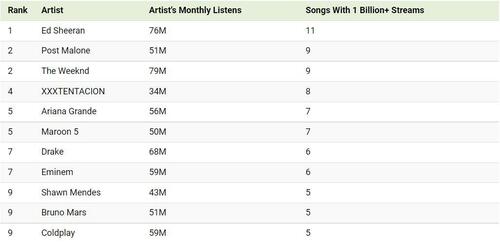I was invited to participate in a Hofstra Law Review symposium on free speech in law schools, which will be happening in February, and I thought I’d serialize my current draft article; there’s still plenty of time to improve it, so I’d love to hear people’s comments. Here are some follow-up thoughts on what I think law schools should try to teach, though you can read the whole PDF, if you prefer:
[* * *]
F. Building Coalitions
Lawyers also often need to build coalitions in order to win. The most effective amicus supporting our position, for instance, might be a group with which our client would sharply disagree on most things—but which may agree with our client’s position on, say, the freedom of speech, or the right to jury trial, or whatever issue is important in this case. If we’re arguing against a regulation, we might deliberately want to seek comments from people on all points of the political spectrum. If we’re lobbying for a statute or arguing to the voters in favor of a ballot measure, we may need to do the same.
Again, we can’t do that if our first reaction is the natural human reaction of shunning one’s adversaries for their ideological sins. Law schools need to teach students the habits and attitudes needed for effective coalition-building, and to unlearn the normal inclination towards viewing each one’s ideological adversaries as permanent enemies.
G. Unflappably Confronting Unpleasant Facts and Arguments
Lawyers also need to be prepared to deal with difficult and unpleasant facts and arguments, whether in court, when reading precedents, when reviewing documents, or when interviewing witnesses or the client. Indeed, we need to react to such matters as calmly and rationally as possible, even when they are understandably disturbing.
Sometimes, these matters can come up in legal debate: The other side makes an argument that we find offensive, and we have to be able to respond to it substantively, rather than being distracted by its offensiveness. Occasionally, the other side’s argument might not just be offensive but might violate legal ethics rules, for instance if it involves a personal attack on us; but those are just a small fraction of the arguments that may be understandably upsetting.
And sometimes such matters may arise simply because people feel they should tell lawyers everything, or just get on a roll and turn off their internal self-censors, or feel an emotional need to unburden themselves to their own lawyers. We’re interviewing a witness about what he heard, perhaps in an employment case or a criminal case or even a business partnership breakup case, and he reports on some racist or antigay slurs that someone said.
[1] Or we’re asking the witness why two people weren’t working well together, and he reports on some sexist or anti-Semitic or anti-Muslim sentiments that one had expressed about the other.
Or perhaps we’re interviewing a witness who is bad for our side, and he starts launching on some offensive tirade of his own. Say, for instance, I’m interviewing a witness who doesn’t know I’m Jewish, and he starts talking about how everything is the Jews’ fault. That’s potential litigation gold right there: The more I can draw him out, the more effectively I’ll be able to undermine his position at trial, and the stronger my position will be in negotiating a settlement. (To be crass but realistic, imagine that, if given free rein, the witness will start talking about how much he admires Hitler.) But that will happen only if I can keep my cool, and resist the natural human temptation to argue with him or admonish him,[2] or the equally human tendency to get flustered and not know what follow-up questions I should ask.
Or say we’re talking to a client about why he did or failed to do something—even in some normally bland commercial situation—and the answers come out of the blue: The client didn’t come to a meeting because he had been targeted for a racist attack. The client didn’t work well with someone because he had been sexually assaulted by that person a decade before. The client didn’t work well with someone because that client had some prejudices, even highly offensive prejudices, against that person.
The client’s revealing this might actually be a testament to the bond of trust we’ve created with the client: The client feels he can tell us everything, even things that both he and we find disturbing, or things that reflect badly on him. The last thing we should want to do is to damage that trust by lashing out at the client, or perhaps even visibly bristling. Perhaps at some point we might feel that the client’s disclosures of his own viewpoints—or even his willingness to discuss things that happened to him, which might be disturbing for us—might lead us to want to stop representing him. But there are times when we can’t ethically do that, for instance if the trial is coming right up. And in any event, any such reaction on our part should be carefully thought through. In the moment, we need to react as calmly as possible.
Now, to be sure, each professor (and each event organizer) may decide differently how and when such calmness in the face of offensive materials should be taught. Thankfully, being a lawyer isn’t quite like being a Navy SEAL, so one doesn’t have to train accordingly, with frigid-water practice and “‘drown-proofing’ exercises underwater with bound hands.”[3] But law schools do need to make sure that they don’t teach students counterproductive habits and attitudes, in which exposure to unpleasant material is seen as an occasion for complaint rather than resilience.[4] And if students say that they are “traumatized” by exposure to such material, then we should ask how we can train them to avoid such trauma—and thus avoid a serious threat to their future effectiveness as lawyers[5]—rather than to use the asserted trauma as justification not to expose them to certain matters.
[* * *]
Still to come, in future posts (or you can see it now in the PDF):
II. Specific Practices
A. Protecting Student Speech (and Speech of Invited Speakers)
B. Responding to Unpopular Views in Ways That Promote Discussion
C. Evenhandedly Encouraging Debates or Conversations Among People Who Disagree
D. Organizing Law-School-Sponsored Events That Model Thoughtful Disagreement on Controversial Topics
1. The value of law-school-organized events
2. The insufficiency of leaving such debates to the classroom
3. Focusing on real current debates
E. Inviting Leading Successful Advocates from All Points on the Ideological Spectrum
F. Encouraging Faculty to Express Dissenting Views
III. Responses to Some Possible Objections
A. Student Upset (Especially as to Views That Are Seen as Derogatory of Their Identities)
B. Vulnerability of Powerless Minority Groups
C. Risk of Persuasiveness
D. Risk of “Legitimizing” Certain Perspectives
E. Losing the Opportunity to Chill Political and Ideological Participation and Organization by the Other Side
[* * *]
[1] Cf., e.g., Randall Kennedy & Eugene Volokh, The New Taboo: Quoting Epithets in the Classroom and Beyond, 49 Cap. U. L. Rev. 1, 40–41 (2021) (citing business law cases in which the facts incidentally involved offensive material, such as racial slurs).
[2] “Never interrupt your enemy when he is making a mistake.” U.S. Army (@USArmy), Twitter, Sept. 2, 2012, 9:13 am, https://ift.tt/JEyFjTZ (crediting Napoleon).
[3] See Dave Phillips, Navy Orders High-Level Outside Investigation of SEAL Course, N.Y. Times, Sept. 9, 2022. The article noted that the investigation focused on “a damaging ethos of forced suffering that often dismissed serious injuries and illnesses as weakness and a growing subculture of students who saw illicit performance-enhancing drugs as the only way to get through the course”; but the investigation apparently doesn’t cast doubt on the need for demanding training for a demanding profession.
[4] See Kennedy & Volokh, supra note 5, at 33, 42–45 (discussing this with regard to material that accurately quotes slurs, as over ten thousand court cases have done).
[5] See id. at 49–50; Jesse Singal, Stop Telling Students Free Speech Is Traumatizing Them, N.Y. Mag., July 18, 2017; Jesse Singal, Conservative Law Students at Georgetown Were ‘Traumatized’ by an Anti-Scalia Email, N.Y. Mag., Feb. 22, 2016; Conor Friedersdorf, Are Today’s Law Students Tough Enough?, Atlantic, Jan. 12, 2015.
The post Free Speech Rules, Free Speech Culture, and Legal Education: Still More on Teaching for Effective Lawyering appeared first on Reason.com.
from Latest https://ift.tt/rMn8LEB
via IFTTT








